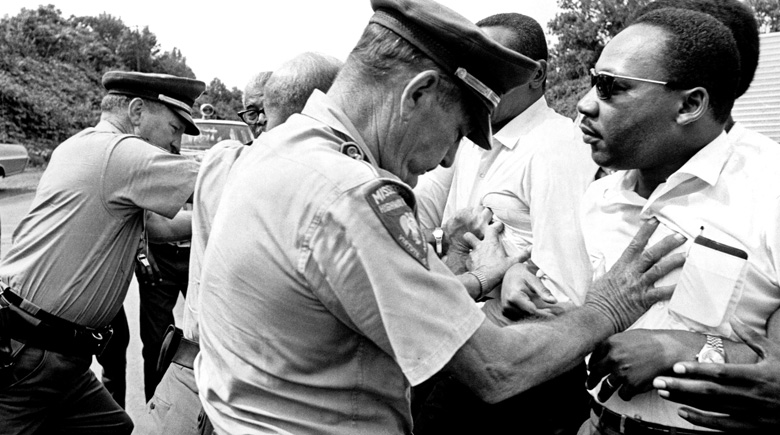*cino is hosting a Weekly Witness for Peace at the Huss Project every Tuesday in October and the first Tuesday in November. Each week, people will gather for 30 minutes in silence while reflecting on what is needed in our community for the work of peace. They will stroll the trails, sit down to meditate or pray, walk the labyrinth to grieve, read to guide reflection—whatever it is they need in the moment to connect with those around our city, our country, and our world seeking real, lasting, and robust peace.
We have curated a series of quotes and writings in a booklet that will be given to each attendee as an aid for reflection; we will also publish these pieces throughout the month on our web site. You’ll find the first piece, an excerpt from a sermon by Martin Luther King Jr., below. These readings are a reminder that peace is not simply the absence of conflict, but the lived experience of justice for all in our city—and that working for peace is difficult. For some, these readings may be challenging to encounter; seek to understand your feelings of defense or confusion. For some, they will mirror painful experiences back to you; consider what support you need in order to heal. Reflect on your reaction and what the work of peace in this place might require of you moving forward.
The silence we provide one another during Weekly Witness for Peace is a recognition that we are committed to doing the hard work of building peace together. It is an act of solidarity with those who are oppressed and those who seek liberation. But it is a very small piece of a larger whole. We hope you find something in your time here that helps you do the work that is yours to do when you leave this place. We need all of our neighbors to work together for the flourishing of our city.
When Peace Becomes Obnoxious
Martin Luther King, Jr.
Dexter Avenue Baptist Church
March 18, 1956
King delivered this sermon from Dexter’s pulpit the day before his trial for violating Alabama’s anti-boycott law during the Montgomery Bus Boycott in 1955-56. Below is an excerpt from his handwritten outline for the sermon:
Peace is not merely the absence of some negative force—war, tensions, confusion—but it is the presence of some positive force—justice, goodwill, the power of the kingdom of God.
I had a long talk the other day with a man about this bus situation. He discussed the peace being destroyed in the community, the destroying of good race relations. I agreed that it is more tension now. But peace is not merely to absence of this tension, but the presence of justice. And even if we didn’t have this tension, we still wouldn’t have positive peace. Yes, it is true that if the Negro accepts his place, accepts exploitation and injustice, there will be peace. But it would be an obnoxious peace. It would be a peace that boiled down to stagnant [complacency], deadening passivity.
If peace means this, I don’t want peace:
- If peace means accepting second-class citizenship, I don’t want it.
- If peace means keeping my mouth shut in the midst of injustice and evil, I don’t want it.
- If peace means being complacently adjusted to a deadening status quo, I don’t want peace.
- If peace means a willingness to be exploited economically, dominated politically, humiliated and segregated, I don’t want peace.
In a passive non-violent manner we must revolt against this peace.
Last modified: October 20, 2020





